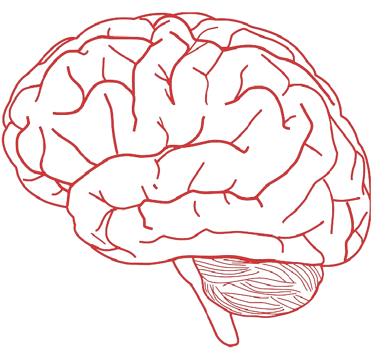Understanding Brain Diseases: Alzheimer's, Parkinson's, Dementia
Explore a comprehensive blog post on 20 brain diseases like Alzheimer's, Parkinson's, and Dementia. Learn about the causes, symptoms, and preventive measures for each condition.
Divine & Genuine.
9/2/20244 min read


1) Alzheimer's Disease: A progressive neurodegenerative disorder characterized by memory loss, cognitive decline, and personality changes.
Causes: Unknown, but contributing factors may include age, genetics, family history, and the presence of amyloid-beta plaques in the brain.
Prevention: May be prevented or delayed if you engage in regular physical and mental exercise, maintain a healthy diet (Mediterranean or DASH diet), manage cardiovascular risk factors, and stay socially active.
2) Parkinson's Disease: A neurodegenerative disorder that affects movement, resulting in tremors, stiffness, and slow movement (bradykinesia).
Causes: Loss of dopamine-producing neurons in the brain, with potential genetic and environmental factors.
Prevention: No proven method of prevention exists, but maintaining regular exercise, a healthy diet, and avoiding pesticide exposure may help reduce the risk.
3) Stroke: A sudden interruption of blood supply to the brain, leading to brain cell damage.
Causes: Blockage of arteries (ischemic stroke) or rupture of blood vessels (hemorrhagic stroke).
Prevention: Manage blood pressure, control diabetes, avoid smoking, maintain a healthy weight, and exercise regularly.
4) Epilepsy: A neurological disorder involving repeated seizures caused by abnormal electrical activity in the brain.
Causes: Genetic factors, brain injury, infections, or developmental disorders.
Prevention: Prevent head injuries, treat infections promptly, manage underlying health conditions, and avoid known seizure triggers.
5) Multiple Sclerosis (MS): An autoimmune disease where the immune system attacks the protective sheath (myelin) of nerve fibers, causing communication problems between the brain and the body.
Causes: The exact cause is unknown; possible factors include genetics, environmental factors, and infections.
Prevention: There is no known prevention, but maintaining a healthy lifestyle, managing stress, and avoiding smoking may help.
6) Amyotrophic Lateral Sclerosis (ALS): A progressive neurodegenerative disease that affects nerve cells in the brain and spinal cord, leading to muscle weakness and atrophy.
Causes: The exact cause is largely unknown but it may include genetic mutations and environmental factors.
Prevention: No known method to prevent this condition; however, adopting a healthy lifestyle and avoiding exposure to toxins may help reduce the risk.
7) Huntington's Disease: A genetic disorder that results in the progressive breakdown of nerve cells in the brain, leading to impairments in movement, cognition, and behavior.
Causes: Inherited genetic mutation in the HTT gene.
Prevention: No prevention is available due to its genetic nature, but genetic counseling is recommended for those with a family history.
8) Migraine: A neurological condition characterized by intense, throbbing headaches, often accompanied by nausea, vomiting, and sensitivity to light and sound.
Causes: The exact cause is unknown. Triggers include hormonal changes, stress, certain foods, and environmental factors.
Prevention: Identify and avoid triggers, manage stress, maintain a regular sleep schedule, and consider preventive medications if migraines become frequent.
9) Brain Tumors: Abnormal growth of cells within the brain, which can be either benign or malignant.
Causes: Include genetic mutations, radiation exposure, and inherited conditions.
Prevention: Limit radiation exposure, avoid smoking, and maintain a healthy lifestyle. Early detection through regular check-ups may help in early intervention.
10) Traumatic Brain Injury (TBI): A brain injury caused by an external force, often from a blow or jolt to the head.
Causes: Include falls, vehicle accidents, sports injuries, or violence.
Prevention: Wear protective gear during sports, use seat belts in vehicles, ensure living spaces are safe to prevent falls, and avoid risky behaviors.
11) Encephalitis: An inflammation of the brain, often caused by an infection.
Causes: Viral infections (e.g., herpes simplex, West Nile virus), bacterial infections, or autoimmune reactions.
Prevention: Vaccination (e.g., against measles, mumps, rubella), avoiding mosquito bites, practicing good hygiene, and prompt treatment of infections.
12) Meningitis: Inflammation of the membranes (meninges) surrounding the brain and spinal cord.
Causes: Bacterial, viral, or fungal infections.
Prevention: Includes getting vaccinated (e.g., for meningococcal and pneumococcal diseases), practicing good hygiene, and avoiding contact with infected individuals.
13) Cerebral Palsy: A group of disorders that affect movement and muscle tone, caused by damage to the developing brain, often before birth.
Causes: Brain injury during pregnancy, birth complications, infections, or genetic mutations.
Prevention: Proper prenatal care, vaccination against infections during pregnancy, avoiding alcohol and drugs, and managing chronic conditions
14) Creutzfeldt-Jakob Disease (CJD): A rare, degenerative, and fatal brain disorder caused by misfolded proteins called prions.
Causes: Sporadic (most cases), genetic mutations, or exposure to prion-contaminated materials.
Prevention: No known prevention exists, but avoiding exposure to prions (e.g., from contaminated medical equipment or beef) is essential.
15) Dementia: A general term for a decline in cognitive function severe enough to interfere with daily life, with Alzheimer's being the most common cause.
Causes: Neurodegenerative diseases, vascular problems, infections, and chronic drug or alcohol use.
Prevention: Healthy lifestyle, cognitive training, managing cardiovascular risk factors, and staying socially active.
16) Brain Aneurysm: A bulge or ballooning in a blood vessel in the brain that can potentially rupture, causing a hemorrhagic stroke.
Causes: Weakness in the blood vessel wall, hypertension, smoking, and genetic factors.
Prevention: Control your blood pressure, avoid smoking, limit alcohol consumption, and maintain a healthy lifestyle.
17) Hydrocephalus: A condition characterized by an abnormal accumulation of cerebrospinal fluid (CSF) within the brain's ventricles.
Causes: Congenital defects, infections, tumors, or traumatic injuries
Prevention: Prenatal care, early treatment of infections, and monitoring for symptoms after head injuries.
18) Toxic Encephalopathy: Brain dysfunction caused by exposure to toxic substances.
Causes: Exposure to chemicals, drugs, or heavy metals.
Prevention: Avoid exposure to toxic substances, use protective equipment, and ensure proper ventilation when handling chemicals.
19) Myasthenia Gravis: An autoimmune disorder that causes weakness in the skeletal muscles due to impaired communication between nerves and muscles.
Causes: Autoimmune responses attacking acetylcholine receptors.
Prevention: No known prevention, but managing stress, avoiding known triggers, and early diagnosis can help manage symptoms.
20) Bell's Palsy: Sudden, temporary weakness or paralysis of the facial muscles, typically on one side of the face.
Causes: Unknown, but believed to be linked to viral infections, such as herpes simplex.
Prevention: There is no approved method to prevent Bell's Palsy, but managing stress and avoiding infections may decrease the risk.
DON’T FORGET TO SUBSCRIBE AND SHARE.
DISCLAIMER: Please be advised that the information provided here is for informational purposes only. It is not intended to be taken as medical advice or consultation. It is imperative that you consult your physician for any medical advice.
Quality
Providing top-notch health and wellness products and services.
Satisfaction
Gold
info@divineandgenuine.com
© 2024. All rights reserved.
